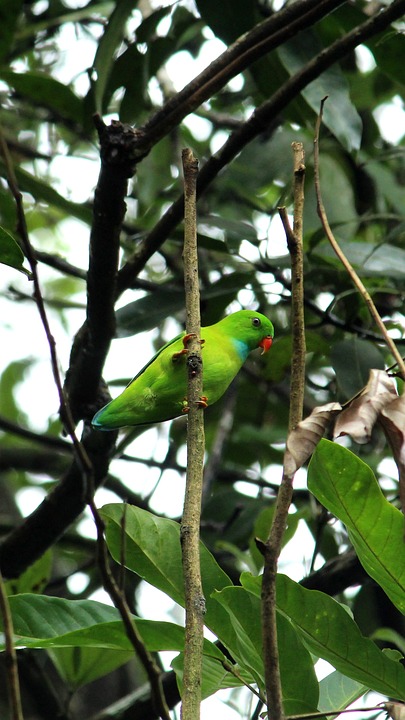Parrots are fascinating creatures that can experience a range of emotions, including happiness and contentment. As a parrot owner, it is important to be able to recognize the signs that indicate your feathered friend is feeling joyful and fulfilled. By understanding their behavior and observing their actions, you can ensure that your parrot is living a happy and fulfilling life.
One of the key indications of a happy parrot is active and engaged behavior. A happy parrot will be active, climbing, flying, and exploring its surroundings. It will show curiosity and interest in its environment, frequently exploring toys, perches, and other objects. This active behavior is a clear sign that your parrot is feeling happy and stimulated.
Vocalizations and mimicking sounds are also signs of a happy parrot. Parrots are known for their vocal abilities, and a content parrot will vocalize in various ways, including chirping, whistling, and mimicking sounds from its environment or human speech. Cheerful vocalizations are often accompanied by head bobbing or dancing.
Playfulness and exploratory behavior are additional indications of a happy parrot. Happy parrots engage in playful activities, such as tossing and manipulating toys, solving puzzles, or engaging in interactive games with their owners. They might also enjoy exploring new objects and textures using their beaks and feet.
Feather preening and maintenance is another behavior that indicates contentment in parrots. Parrots are meticulous groomers, and a happy parrot will spend time preening its feathers, ensuring they are clean and well-maintained. The act of preening also serves as a self-soothing behavior, indicating contentment.
Observing a parrot’s body language can provide valuable insights into its emotional state. A content parrot will display relaxed body language, including smooth feathers, a slightly raised crest, and a relaxed posture with wings held naturally against its body. This relaxed body language is a clear sign that your parrot is feeling content and at ease.
In addition to recognizing signs of happiness, it is also important to be able to recognize signs of contentment in parrots. A content parrot will exhibit a relaxed and open posture, with feathers sleeked down. It might slightly open its wings, revealing the undersides, as a sign of trust and relaxation.
Trust and affection are also signs of contentment in parrots. Parrots that feel secure and loved will exhibit trusting behavior, such as willingly stepping onto their owner’s hand or shoulder. They might also engage in affectionate behaviors, such as preening their human companion or gently nibbling on their fingers.
A happy parrot will have a healthy appetite and show excitement during mealtimes. It will readily consume a varied diet, including fresh fruits, vegetables, and high-quality pellets. Additionally, a content parrot may use food as a form of play, tossing or manipulating treats.
Just like humans, parrots require sufficient sleep to maintain good health and well-being. A content parrot will have regular sleeping patterns, sleeping comfortably during the night and taking short naps during the day.
Lastly, social interactions with humans and other parrots are important for a parrot’s happiness. Parrots are highly social animals that thrive on interaction. A happy parrot will actively seek out social interactions with its human companions, engaging in conversation, play, and physical contact. If living with other parrots, a content parrot will display friendly behavior, such as mutual preening and sharing perches.
In conclusion, recognizing signs of happiness and contentment in parrots is crucial for their well-being. By understanding their behavior and observing their actions, you can ensure that your parrot is living a happy and fulfilling life. From active and engaged behavior to vocalizations and mimicking sounds, playfulness, feather preening, and relaxed body language, there are numerous signs that indicate a happy and content parrot. Additionally, trust and affection, healthy appetite and feeding behavior, regular sleeping patterns, and social interactions with humans and other parrots are all important indicators of a happy parrot. By providing a nurturing environment and meeting their social and emotional needs, you can ensure that your parrot lives a long, happy, and fulfilling life.









